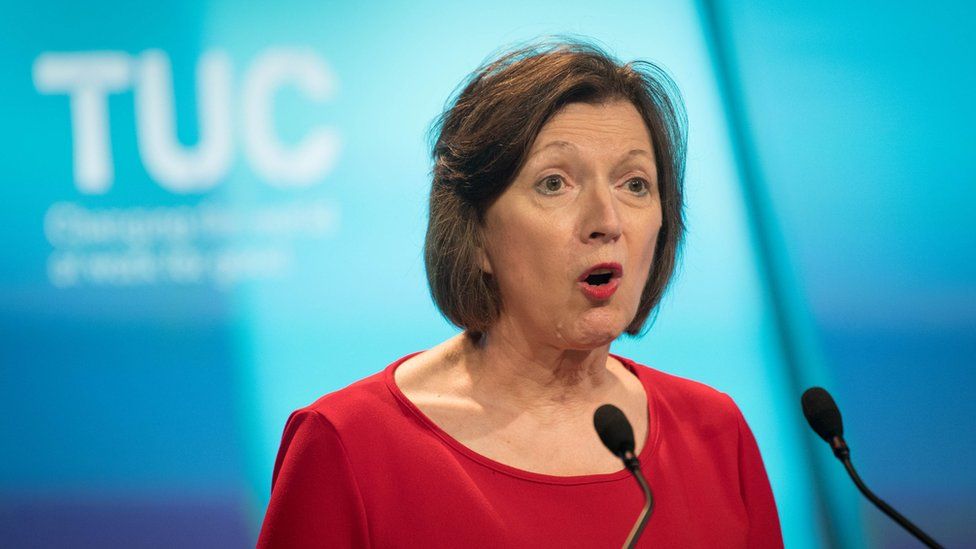ARTICLE AD BOX
 Image source, PA Media
Image source, PA Media
Francis O'Grady is stepping down after almost a decade as TUC general secretary
The "longest wage squeeze since Napoleonic times" has left UK families at breaking point, the head of the Trades Union Congress will say later.
Workers are facing two decades with no real wage growth, Frances O'Grady will tell the TUC conference in Brighton.
Prices have risen faster than wages since the financial crisis in 2008.
There was a "moral and economic argument for making sure people's pay packets at least keep up with inflation", she told the BBC.
"The economy has become skewed," said Ms O'Grady, speaking to the BBC's Today programme, ahead of the conference.
"Shareholder dividends have been rising much, much faster while real pay has been falling.
"We need people to have money in their pockets to spend in pubs local shops to keep our High Streets open."
The union umbrella body estimates that real wages - which take rising prices into account - will not return to their 2008 level until 2028.
That would mean a further loss in real terms of £4,000, on average, over the next three years as a result of price rises outstripping wage growth.
The TUC calculates that the average worker will have lost a total of £24,000 in real earnings since the 2008 financial crash as a result of pay not keeping pace with inflation.
Ms O'Grady, who is stepping down after almost a decade as TUC general secretary, said the government's policies had caused "mess and damage" affecting livelihoods, mortgages and household bills.
Public sector staff were leaving "in droves" she added because of poor pay rates, she added.
In her speech later, Ms O'Grady will warn the government not to go ahead with plans that would make it harder for unions to organise strike action.
"If ministers cross the road to pick a fight with us then we will meet them halfway... we will see you in court," she will say.
There has already been a wave of strike action affecting postal, communication and rail services. Barristers and dockworkers have also been on strike. Workers in health and education are balloting over action.
The government has proposed requiring unions to put pay offers to a member vote before calling a strike. It also aims to ensure transport companies maintain a minimum level of service during industrial action.
New rules on allowing employers to hire agency workers during strikes have already been passed.

 2 years ago
36
2 years ago
36








 English (US) ·
English (US) ·